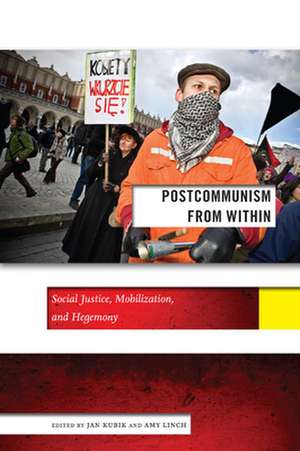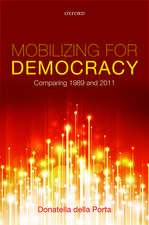Postcommunism from Within – Social Justice, Mobilization, and Hegemony: Social Science Research Council
Autor Jan Kubik, Amy Linchen Limba Engleză Hardback – 25 aug 2013
Preț: 386.54 lei
Nou
Puncte Express: 580
Preț estimativ în valută:
73.99€ • 80.39$ • 62.19£
73.99€ • 80.39$ • 62.19£
Carte tipărită la comandă
Livrare economică 21 aprilie-05 mai
Preluare comenzi: 021 569.72.76
Specificații
ISBN-13: 9780814724262
ISBN-10: 0814724264
Pagini: 453
Dimensiuni: 165 x 237 x 38 mm
Greutate: 0.73 kg
Editura: MI – New York University
Seria Social Science Research Council
ISBN-10: 0814724264
Pagini: 453
Dimensiuni: 165 x 237 x 38 mm
Greutate: 0.73 kg
Editura: MI – New York University
Seria Social Science Research Council
Recenzii
"This is a much-needed collection. Studies of the political and economic transformation of the postcommunist countries have focused on the role of the state and market, obscuring both a full consideration of the role of society and the impact of change on society. Such a bottom-up perspective is necessary to understand the phenomenon of postcommunism. In bringing together a series of essays on focused gender, poverty, and corruption the book is a must for anyone who wants to develop a multifaceted and nuanced understanding of the far-reaching changes of the past two decades."-Michael Bernhard, Raymond and Miriam Ehrlich Chair, Department of Political Science, University of Florida
Notă biografică
Jan Kubik is Professor and Chair in the Department of Political Science at Rutgers University, New Brunswick. His publications include Anthropology and Political Science and The Power of Symbols against the Symbols of Power.
Descriere
Explores not just how citizens respond to political and economic restructuring engineered at the top but also how people enact their own visions of life, politics, and justice by responding to daily challenges.




















